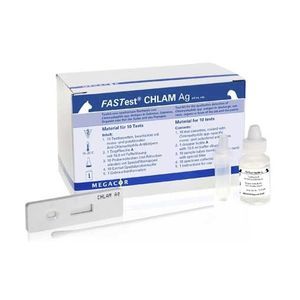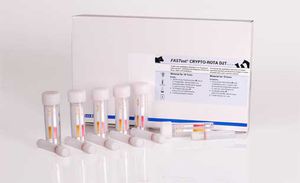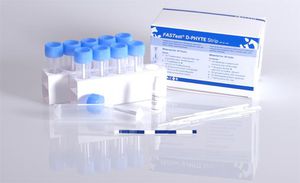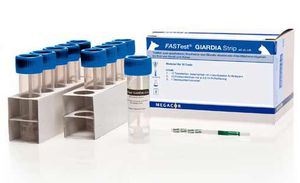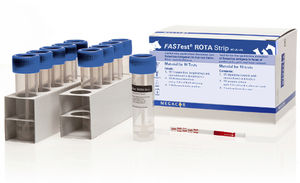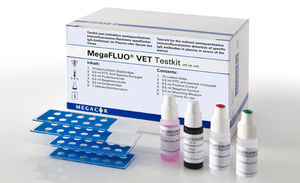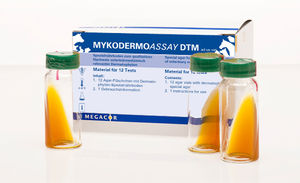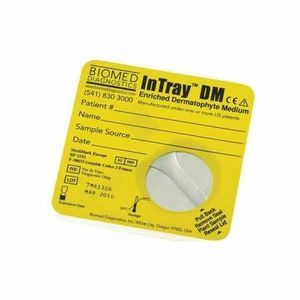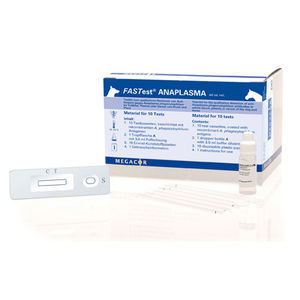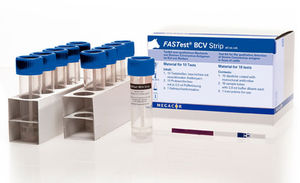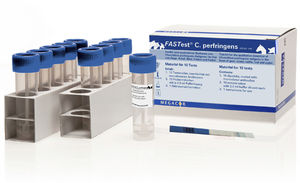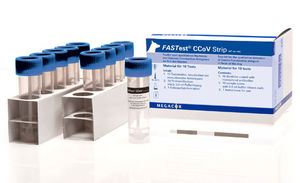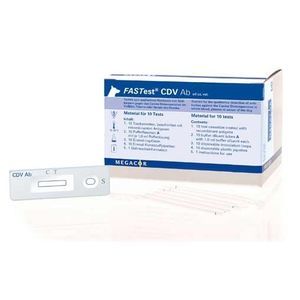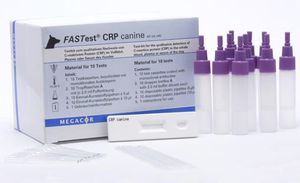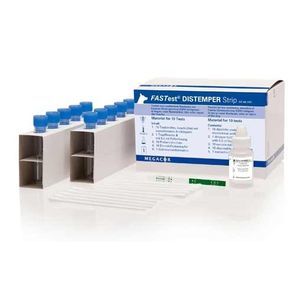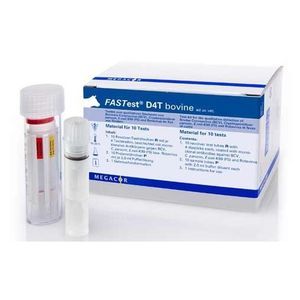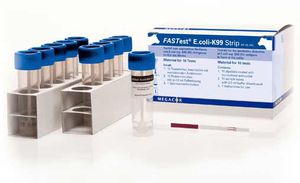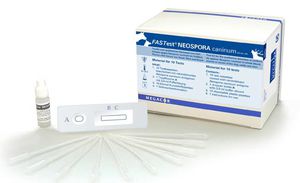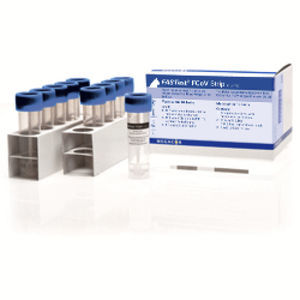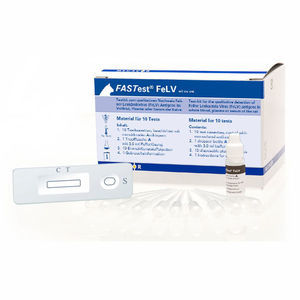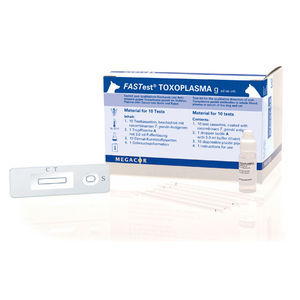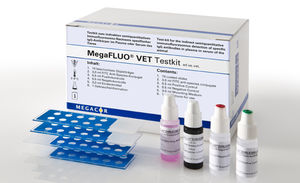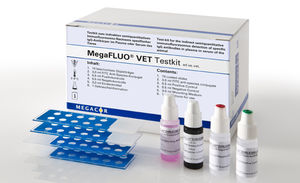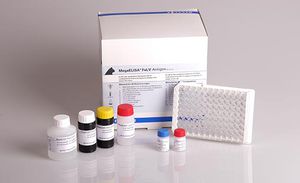
- Laboratory
- Laboratory medicine
- Rapid ehrlichiosis test
- MEGACOR Diagnostik
Rapid ehrlichiosis test FASTest® EHRLICHIA canisfor dogsfor antibodiesEhrlichia
Add to favorites
Compare this product
Characteristics
- Applications
- for ehrlichiosis
- Patient type
- for dogs
- Tested parameter
- for antibodies
- Micro-organism
- Ehrlichia
- Sample type
- serum, plasma, whole blood
- Analysis mode
- immunochromatographic
- Result display time
20 min
- Specificity
93.3 %
- Sensitivity
94.3 %
Description
FASTest® EHRLICHIA canis is a rapid immunochromatographic test for the qualitative detection of antibodies against Ehrlichia canis in whole blood, plasma or serum of the dog.
Canine monocytic ehrlichiosis (CME) is caused by the rickettsia Ehrlichia canis, which are mainly transmitted by the brown dog tick (Rhipicephalus sanguineus). Ehrlichia canis is found in many parts of the world, especially in the Mediterranean area, but also in Switzerland and partly Germany. Ehrlichiosis is common in the dog, but seldom in humans.
The concentration of specific antibodies increases sharply 2–3 weeks post infection. A fourfold titre increase of antibodies in an interval of two weeks (seroconversion) is indicative for an acute infection. In the acute stage, the dog shows apathy, anorexia, fever and lymphadenitis. In the subclinical phase, clinical symptoms are missing, but not the typical ehrlichiosis laboratory results like hyperglobulinaemia and thrombocytopenia. Chronic phase animals show slight up to life-threatening symptoms: spontaneous bleedings, neurological disorders, anaemia, severe loss of weight as well as spleno- and hepatomegaly. Indirect antibody detection is known to be an important diagnostic tool diagnosing CME beside clinical symptoms, case history (travel abroad) and direct antigen detection.
FASTest® EHRLICHIA canis is based on recombinant, highly specific peptide antigens for a fast and reliable detection of antibodies against Ehrlichia canis in whole blood, plasma or serum of infected dogs.
Catalogs
No catalogs are available for this product.
See all of MEGACOR Diagnostik‘s catalogsRelated Searches
- Assay kit
- Blood assay kit
- Molecular biology reagent kit
- Serum assay kit
- Immunoassay assay kit
- Plasma assay kit
- Infectious disease detection kit
- Blood rapid diagnostic test
- Diagnostic reagent kit
- Laboratory reagent kit
- Rapid lateral flow test
- Immunoassay rapid diagnostic test
- Rapid virus test
- Serum rapid diagnostic test
- Plasma rapid diagnostic test
- Histology reagent kit
- Reagent medium reagent kit
- Infectious disease rapid diagnostic test
- Immunology reagent
- Whole blood rapid diagnostic test
*Prices are pre-tax. They exclude delivery charges and customs duties and do not include additional charges for installation or activation options. Prices are indicative only and may vary by country, with changes to the cost of raw materials and exchange rates.



